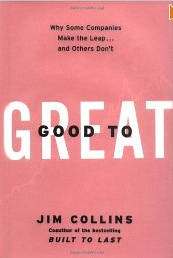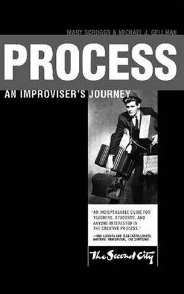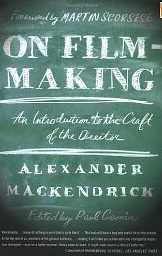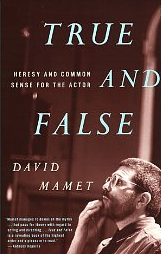I recently finished reading “Talent is Overrated” by Geoff Colvin. Below are the quotes I found useful and applicable to the entertainment industry. As always, if you find the quotes useful, please read and buy the book.
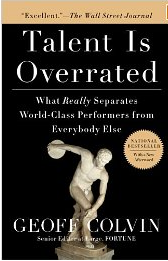 “Many people not only fail to become outstandingly good at what they do, no matter how many years they spend doing it, they frequently don’t even get any better than they were when they started.” (3)
“Many people not only fail to become outstandingly good at what they do, no matter how many years they spend doing it, they frequently don’t even get any better than they were when they started.” (3)
“Research confirms that merely putting in the years isn’t much help to someone who wants to be a great performer.” (4)
“If customer ignorance is a profit center for you, you’re in trouble.” (11)
“Today, in a change that is historically quite sudden, financial capital is abundant. The scarce resource is no longer money. It’s human ability.” (12)
“Being good at whatever we want to do is among the deepest sources of fulfillment we will ever know.” (16)
“One factor, and only one factor, predicted how musically accomplished the students were, and that was how much they practiced.” (18)
“There is absolutely no evidence of a ‘fast track’ for high achievers.” (19)
“Over and over, the researchers found few signs of precocious achievement before the individuals started intensive training. “(23)
“IQ is a decent predictor of performance on an unfamiliar task, but once a person has been at a job for a few years, IQ predicts little or nothing about performance.” (45)
“No matter who they were, or what explanation of their performance was being advanced, it always took them many years to become excellent, and if a person achieves elite status only after many years of toil, assigning the principal role in that success to innate gifts becomes problematic, to say the least.” (61)
“In math, science, musical composition, swimming, X-ray diagnosis, tennis, literature – no one, not even the most “talented” performers, became great without at least ten years of very hard preparation.” (62)
“Deliberate practice is characterized by several elements, each worth examining. It is activity designed specifically to improve performance, often with a teacher’s help; it can be repeated a lot; feedback on results is continuously available; it’s highly demanding mentally, whether the activity is purely intellectual such as chess or business related activities, or heavily physical, such as sports; and it isn’t much fun.” (66)
“Anyone who thinks they’ve outgrown the benefits of a teacher’s help should at least question that view.” (67)
“At the driving range or at the piano, most of us, as adults, are just doing what we’ve done before and hoping to maintain the level of performance that we probably reached long ago.” (68)
“The great performers isolate remarkably specific aspects of what they do and focus on just those things until they are improved; then it’s on to the next aspect.” (68)
“Only by choosing activities in the learning zone can one make progress. That’s the location of skills and abilities that are just out of reach. We can never make progress in the comfort zone because those are the activities we can already do easily; while panic-zone activities are so hard that we don’t even know how to approach them.” (69)
“Identifying the learning zone, which is not simple, and then forcing oneself to stay continually in it as it changes, which is even harder – these are the first and most important characteristics of deliberate practice.” (69)
“You can work on technique all you like, but if you can’t see the effects, two things will happen: You won’t get any better, and you’ll stop caring.” (70)
“Doing things we know how to do well is enjoyable, and that’s exactly the opposite of what deliberate practice demands. Instead of doing what we’re good at, we insistently seek out what we’re not good at. Then we identify the painful, difficult activities that will make us better and do those things over and over. After each repetition, we force ourselves to see – or get others to tell us – exactly what still isn’t right so we can repeat the most painful and difficult parts of what we’ve just done. We continue that process until we’re mentally exhausted.” (71)
“The reality that deliberate practice is hard can even be seen as good news. It means that most people wont’ do it. So your willingness to do it will distinguish you all the more.” (72)
“Deliberate practice does not fully explain achievement – real life is too complicated for that. Most obviously, we’re all affected by luck; time and chance happeneth to us all.” (79)
“Genes could play a role in a person’s willingness to put himself or herself through the extremely rigorous demands of becoming an exceptional performer.” (81)
“Frequently when we see great performers doing what they do, it strikes us that they’ve practice for so long, and done it so many times, they can just do it automatically. But in fact, what they have achieved is the ability to avoid doing it automatically.” (82)
“Great performers never allow themselves to reach the automatic, arrested development stage in their chosen field. That is the effect of continual deliberate practice – avoiding automaticity. The essence of practice, which is constantly trying to do the things one cannot do comfortably, makes automatic behavior impossible.” (83)
“Practice is all about pushing ourselves just beyond what we can currently do.” (84)
“We can see mentors in a new way – not just as wise people to whom we turn for guidance, but as experienced masters in our field who can advise us on the skills and abilities we need to acquire next, and can give us feedback on how we’re doing.” (109)
“The best performers set goals that are not about the outcome but about the process of reaching the outcome.” (117)
“Too high a standard is discouraging and not very instructive, while too low a standard produces no advancement.” (119)
“A mental model is never finished. Great performers not only possess highly developed mental models, they are also always expanding and revising those models.” (124)
“Understand that each person in the organization is not just doing a job, but is also being stretched and grown.” (128)
“Some of the worst teams I’ve ever seen have been those where everybody was a potential CEO,” says David Nadler. “If there’s a zero-sum game called succession going on, it’s very difficult to have an effective team.” (137)
“Reciprocal vulnerability is the beginning of trust. But the process can be rushed only so much.” (139)
“Just as great individual performers possess highly developed mental models of their domains, the best teams are composed of members who share a mental model – of the domain, and of how the team will be effective.” (141)
“In a world that forces that push toward the commoditization of everything, creating something new and different is the only way to survive. A product unlike any other can’t be commoditized. A service that reaches deep into the psyche of the buyer can never be purchased solely on price. Creating such products and services was always valuable; now it’s essential.” (146)
“As products and services live shorter lives, so do the business models of the companies that sell them.” (147)
“The most eminent creators are consistently those who have immersed themselves utterly in their chosen fields, have devoted their lives to it, amassed tremendous knowledge of it, and continually pushed themselves to the front of it.” (155)
“In many creative fields the person who pursues an advanced degree has consciously chosen a path that leads to a professorship, not to a life of innovating in that domain.” (156)
“Innovation doesn’t reject the past; on the contrary, it relies heavily on the past and comes most readily to those who’ve mastered the domain as it exists.” (157)
“People who are internally driven to create do seem more creative than those who are just doing it for the money.” (164)
“Excellent performers suffer the same age-related declines in speed and general cognitive abilities as everyone else – except in their field of expertise.” (180)
“The consistent finding reported by many researchers examining many domains is that high creative achievement and intrinsic motivation go together. Creative people are focused on the task (How can I solve this problem?) and not on themselves (What will solving this problem do for me?).” (189)
“The people who do become top-level achievers are rarely child prodigies.” (197)
If you want to read the whole book, you can buy it here.

